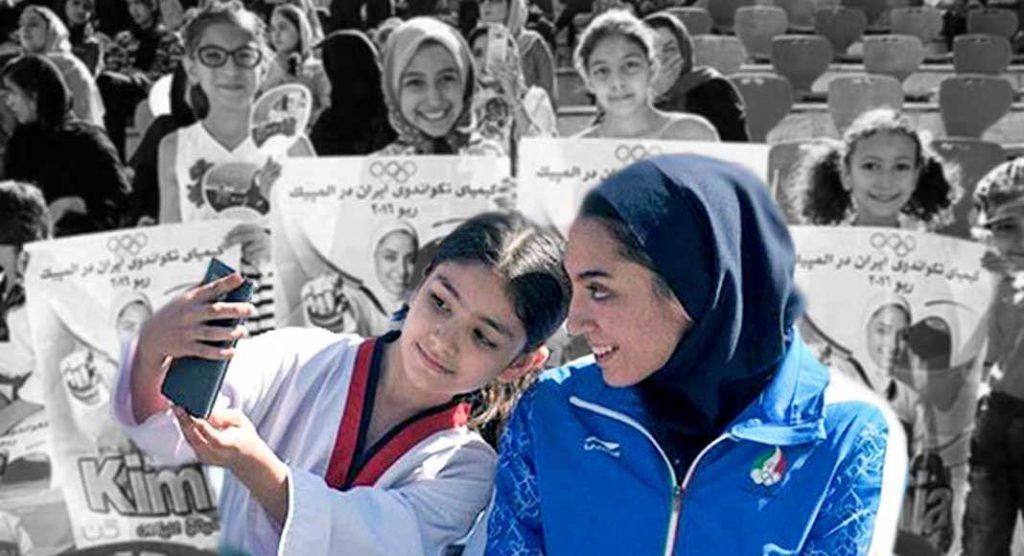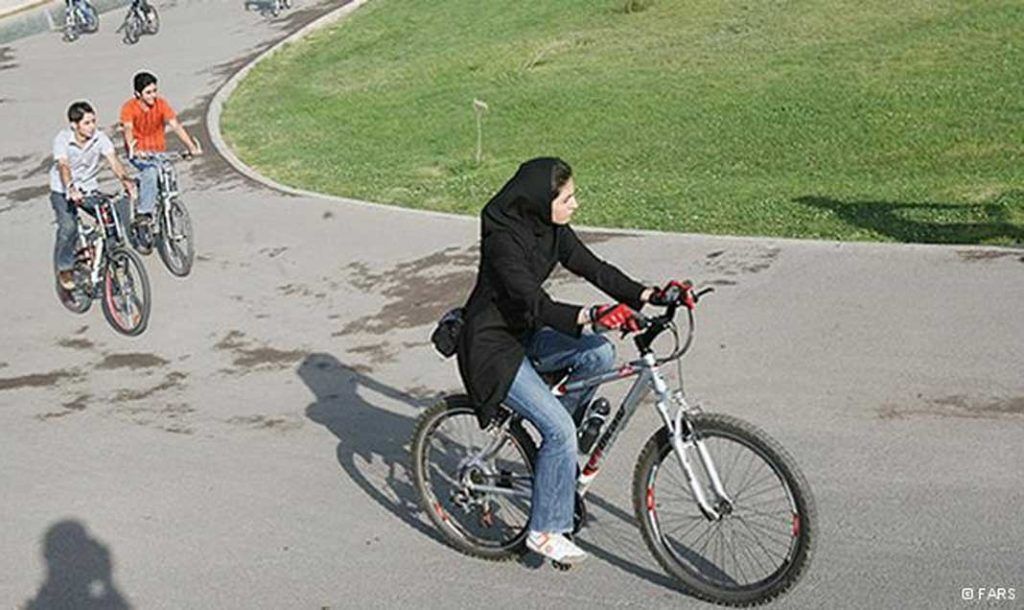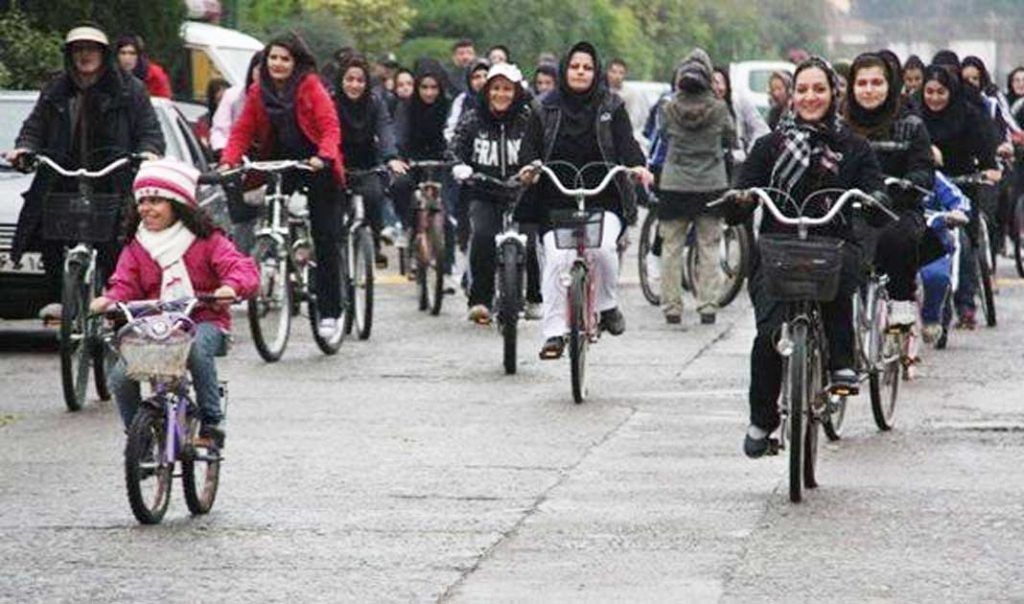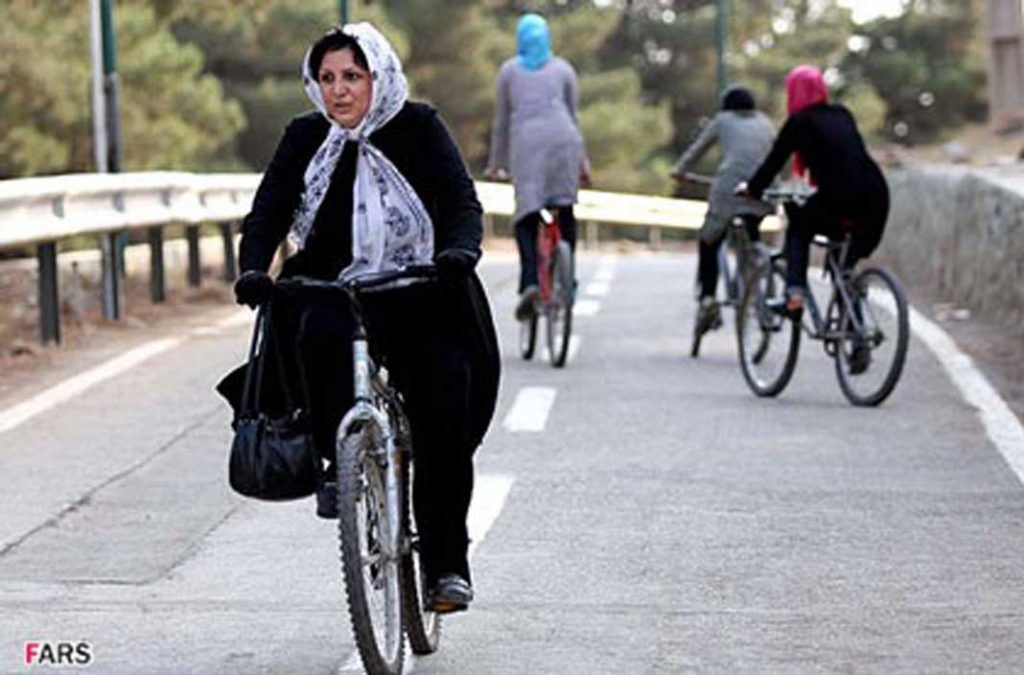Saturday, September 24, 2016
In September 2016, the US media reported the appointment of Sahar Nowrouzzadeh, an Iranian-American woman, as the Persian spokesperson for the US Department of State. Nowrouzzadeh had previously served as a Director for Iran on the National Security Council at the White House in President Obama’s administration.
In January 2016, Yasmin Fahimi, a German politician, became the civil servant State Secretary at the Federal Ministry of Labor. Fahimi, who is also a trade unionist, was the general secretary of the Social Democratic Party (SPD) from January 2014 to December 2015.
Meanwhile, in Iran, the Supreme Leader, Ayatollah Ali Khamenei, issued a fatwa (religious decree) prohibiting women from riding bicycles in public spaces.
The majority of western countries celebrate the contributions that women of Iranian descent have made to their societies and cultures. In stark contrast, however, the Iranian regime refuses to acknowledge the extraordinary achievement of the 18 year old Kimia Alizadeh Zenoorin who became the first Iranian woman to win an Olympic medal. She claimed a tae-kwon-do bronze medal in 57 kg category in Rio.
Misogynous Fatwas
Ayatollah Abdollah Javadi-Amoli, a conservative politician, said: “ There is no merit in winning a medal; being a mother is a woman’s true achievement.” Javadi-Amoli, who teaches at the Qom Seminary, added: “It is not a virtue for a woman to stretch her leg and hit another person. Where are we headed?”
Ayatollah Lotfollah Safi Golpayegani, who reportedly is a source of emulation, said: “Encouraging Muslim women to travel abroad to participate in sport competitions alongside men and wear inappropriate attire is forbidden. It is against religious values and principles.”
Piling on, Mashhad Friday prayers‘ leader Ahmad Alamolhoda, criticized television stations for broadcasting women’s sport competitions.
But it was Ayatollah Khamenei’s fatwa against women riding bicycles that made the world news. He told Iran state media : “Riding a bicycle in a public place violates a woman’s chastity and is therefore forbidden.” However, he had previously given his conditional approval to the idea, stressing that women could ride bicycles as long as they abide by religious laws.
Many other religious leaders and sources of emulation, including Seyyed Hossein Sistani, Ayatollah Hossein Nouri-Hamedani and Safi Golpayegani had issued similar fatwas in the past.
It is noteworthy that these public statements by the authorities coincide with a plan by women cyclists to hold a public rally to raise awareness about air pollution. This movement originally started in Marivan in Kurdistan Province, and quickly spread to other cities including Tehran. It is not merely a religious issue. The authorities fear any sort of public gathering, especially those organized by women. The Islamic Republic is not threatened by a single protest; alarms are raised by movements that galvanize people around a particular issue even if it is about clean air or the environment.
Laws restricting women
The spokesperson for the Iranian Parliament Committee on Social issues, Salman Khodadadi, said recently that the Guardian Council (a powerful supervisory body) had approved a bill, proposing to reduce work hours for women. The bill had already been passed by the parliament. Members of the Majlis (Islamic Consultative Assembly) claim that the bill would protect women and families. Not everyone agrees and one MP has spoken out . Khodadadi said: “Sometimes wrong decisions result in gender discrimination. We thought we were helping women by passing this bill, but in fact we are instituting discrimination. This legislation limits a woman’s chance of securing employment.”
Meanwhile, the results of the nationwide concours (university entrance exam) for 2016 was published. According to the National Organization for Educational Testing, roughly 860,000 students had taken the exam, of which 59 percent were female. Of the 398,832 students who were admitted to universities nationwide, 227,324 or over 57 percent were females. Many of the conservative websites published the results, describing it as an alarming phenomenon.
Ignoring a fatwa is not the same as being indifferent
Despite its best efforts, the Iranian regime has never been able to fully impose its social policies on women. Imposing hijab (Islamic attire), pressuring women into becoming submissive housewives, banning them from riding bicycles in public spaces, restricting their ability to take part in athletic competitions, or preventing them from attending universities have only stirred resentment among the population.
Female athletes, such as football players whose international games are never broadcast by the official state media, symbolize the unwavering spirit of Iranian women who strive to achieve their goals despite the misogynous policies of the regime. This spirit was in full display when the Olympic bronze medal winner, Kimia Alizadeh, appeared on a popular comedy show, “Khandevaneh”, which is broadcast on the state-run (IRIB) TV. When the host repeatedly asked when she was planning to marry, Kimia serenely answered: “No one can predict the future, but I am eager to study physiotherapy and plan to start a practice.” This response is given by many Iranian girls in defiance to edicts issued by Ayatollah Khamenei and other clerics who force women into marriage arrangements. Their objective is to indoctrinate women to stay at home to procreate and to abide by the demands of the husband.

Women have responded to the fatwa against cycling, dozens from across the country have posted photographs and videos of themselves riding bicycles on social media. Of note is a picture taken in front of Qazvin city hall (150 km NW of Tehran) of an elderly man trying to teach his wife how to ride a bicycle.
In contrast to the previous generation, young people in Iran do not hold rallies or demonstrations, they respond by ignoring the regime, its leaders, and the fatwas. Girls posted pictures on the internet riding bicycles immediately after the leader had issued the fatwa. The leader has urged girls to get married early and to bear many children. But the data proves otherwise, young people wait longer to get married and the birthrate has dropped significantly. The regime claims that girls pursuing university education is the main reason behind the low rate of marriage and an increase in the number of divorces in Iran. There is an increasing number of girls registering for university exams and working hard to gain admission to them.
Ignoring the regime and its misogynous policies has become a powerful tool against its rule. This tactic has frustrated Iranian leaders who have been unable to muster an effective plan to deal with it. The new generation, especially women, avoid any direct confrontation with a regime that does not hesitate to arrest anyone. Instead, they register their contempt by ignoring the laws that offend their sensibilities and restricts their way of life.
[responsivevoice_button voice=”US English Female” buttontext=”Listen to this “]












